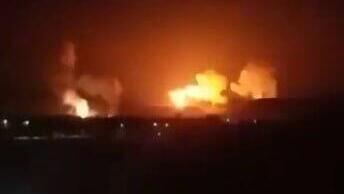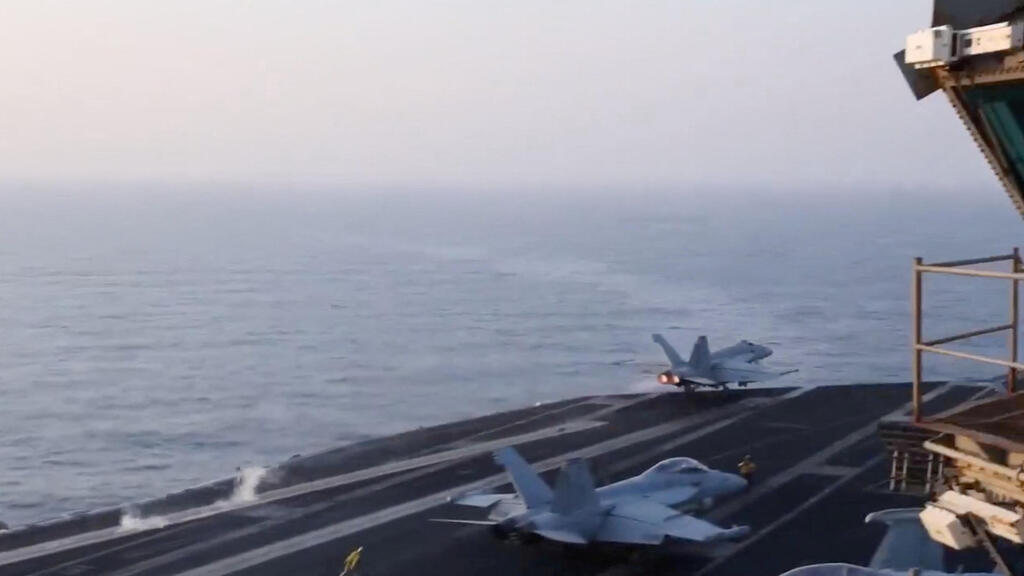Ignoring this reality will only embolden Israel’s adversaries, allowing them to expand their operations and further destabilize the region. To counter this, Israel must take a multi-pronged approach: launching preemptive strikes on Houthi military assets, dismantling Iran’s proxy networks and exposing the support these factions receive from Iran.
At the same time, securing vital shipping routes is essential to prevent economic and strategic vulnerabilities that could cripple Israel’s economy and security.
The Houthis have openly declared their alignment with Iran’s agenda, using their control of key maritime chokepoints to disrupt global trade and threaten Israel’s access to critical supply lines. This is not just about protecting commercial interests—it is about national survival. If Israel allows these attacks to continue without decisive retaliation, it risks becoming increasingly isolated, giving Iran and its proxies the confidence to escalate their aggression. Every attack on an Israeli-affiliated vessel, every missile launched from Yemen and every disruption to global trade is part of a broader campaign to squeeze Israel into a defensive posture, limiting its ability to project power and defend its interests.
The United States has now recognized the severity of the Houthi threat, launching a series of airstrikes against Houthi targets across Yemen, including key military installations and supply routes. This escalation signals that Washington understands the strategic necessity of eliminating Iran-backed proxies before they can cause further instability. The U.S. strikes should serve as a wake-up call for Israel to take even stronger action. By aligning its military efforts with Washington’s, Israel can ensure that the Houthis are systematically dismantled, preventing them from regrouping and escalating their attacks.
Furthermore, Israel must pressure its Western allies to confront the broader threat posed by Turkey and Iran’s support for Islamist factions. Turkey, under President Erdogan, has increasingly aligned itself with radical Islamist movements, providing political and financial backing to groups hostile to Israel. By exposing this alliance and lobbying for stronger sanctions and countermeasures, Israel can weaken the foundations of this terror network and limit its operational reach.
Beyond military action, Israel must also bolster its naval capabilities to ensure that it is never held hostage by a maritime blockade. The Israeli Navy must expand its presence in the Red Sea and develop advanced defensive and offensive capabilities to counter future threats. This includes deploying cutting-edge missile defense systems, increasing intelligence-sharing with allied nations and leveraging drone and AI technology to monitor and neutralize hostile activity before it becomes a direct threat. The U.S. and other Western allies have a vested interest in maintaining freedom of navigation in international waters, and Israel must push for stronger international cooperation to eliminate the Houthi threat before it spirals out of control.
The response to this crisis must be overwhelming and unequivocal. Israel cannot afford half-measures or diplomatic appeasement in the face of a determined enemy. The Houthis, backed by Iran, are testing the limits of Israeli and Western resolve. A weak response will only invite further aggression, not just from the Houthis but from every terrorist faction seeking to challenge Israel’s dominance.
The world is shifting, and Israel must lead the charge. The U.S. is already responding to the threat posed by Iranian-backed proxies in Yemen—Israel must do the same and drive the message home that any assault on its sovereignty will be met with overwhelming retaliation. If Israel hesitates, it risks further attacks, diminished influence and a weakened standing in global geopolitics. The lesson is clear: Israel’s survival depends on its ability to act first, act decisively and ensure that any enemy considering aggression knows there will be no mercy.





